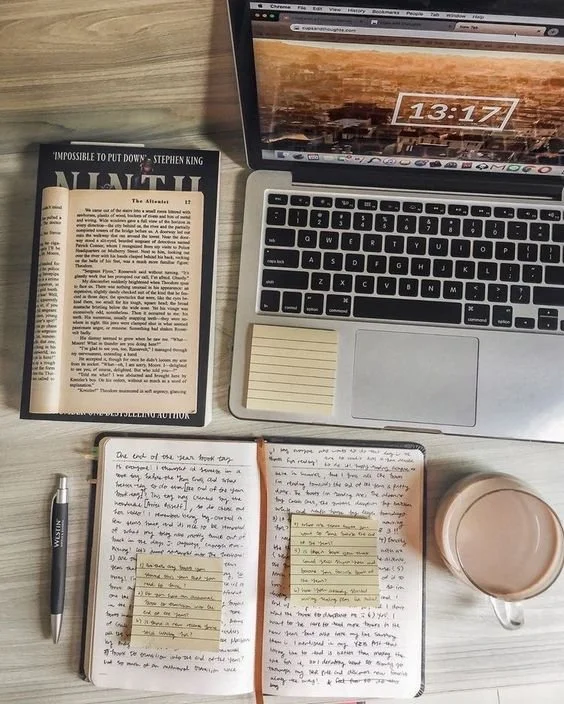Unblock Your Mind; Just Write
How to get rid of writer’s block
By Sarah Kirsch, Culture Staff Writer
Have you ever opened a new document for an assignment and felt completely wordless? Writer’s blocks are more common than you’d expect; they’re caused by distraction, procrastination, intimidation and more. Although there is no technical definition, writer’s block is when someone can’t produce a work or has a creative slowdown. Anyone and everyone can have writers’ blocks: authors, songwriters, students, artists and more. There are thousands of cures, but here are seven personal favorites that help me.
Change your environment.
Sometimes, the environment around you can block inspiration. Decluttering your space, such as cleaning or reorganizing your room, can help spark inspiration. Making your writing space as comfortable as possible can soothe your mind and increase productivity (Purdue University Global, 2019). Changing your environment completely by going on a walk or exploring a new cafe can generate a sentence.
Designate time to write.
For those who get easily distracted or procrastinate, dedicating a chunk of time out of your day or week to write can help overcome writer’s block. Setting aside that time can make it into a habit and make future writing sessions easier and more productive. This is the reason I joined my weekly Undergraduate Writing Group on campus! We meet for an hour and a half to work on our respective projects, usually writing-based. Not only is it interrupted writing and studying time, but it’s created a regular habit of productivity for me.
Follow a writing prompt.
There are many types of writing prompts; creative, fiction, contemporary, fantasy and more variations can be utilized for new or stuck writers. Writing prompts can be found all around the internet. Some of my favorite websites to find them on are Pinterest, Tumblr and Writer’s Digest, but a quick Google search can produce thousands of options. Even TikTok has creators that make daily writing prompts, such as @yourdailywritingprompt! Creators on all sorts of platforms have great prompts and resources to use.
Freewrite.
Freewriting is one of my personal favorite ways to write. It’s similar to brainstorming and is simply writing without stopping (Freewriting, n.d.). I learned it in my high school creative writing class; set a 15-20 minute timer and write anything and everything you can think of without worrying about grammar or spelling. Not only does freewriting help increase the flow of ideas and reduce self-censorship, but it is good for those learning how to write in a second language (Freewriting, n.d.).
Talk out loud.
Talking out loud is an effective, longer way to make a paper or story come together. Recording yourself talking about your thoughts and telling your story can help sort through ideas, understand your thought process and transform words from out loud to a paper. Be careful to avoid mindless rambling and remember to focus on your topic!
Clear your mind.
A clear mind can open endless writing possibilities. Physical activity is a great way to recharge your body and mind (N2RAC, 2020). Even the littlest activity, such as simple exercises, yoga or meditation can clear your mind. When I’m creatively stuck, I like to put my project away for a night, do something fun or relaxing to get my mind off it and continue it the next day. Not only does the short break give me time to recharge mentally, but it gives me a fresh perspective when I reopen the project.
Just write.
It may sound intimidating, but any amount of words is better than no words. Even the littlest phrase can be a later inspiration! Open a new document, flip to a new page, grab a notepad and write down whatever is on your mind. I enjoy doing this with journaling. Some days, I have paragraphs of what I’m feeling in that moment; other days, I simply write down what songs are stuck in my head or a list of chores I need to finish. Not only is it interesting to read journal entries months after writing them, but they can spark an idea.
Writer’s block is a challenge to overcome, but once you find a method that works for you, writing becomes significantly easier. The feeling of completing a story or project makes the struggle of finding the first words easier. When you’re feeling creatively stalled, try to find a spark around you.
Sources:
Purdue University Global. (2019, January 14). 7 Ways to Overcome Writer’s Block. Purdue Global.
Freewriting. (n.d.). The Writing Process.
N2RAC. (2020, September 7). Find Out How Exercise Can Cure Your Creativity Block. The Writing Cooperative.
